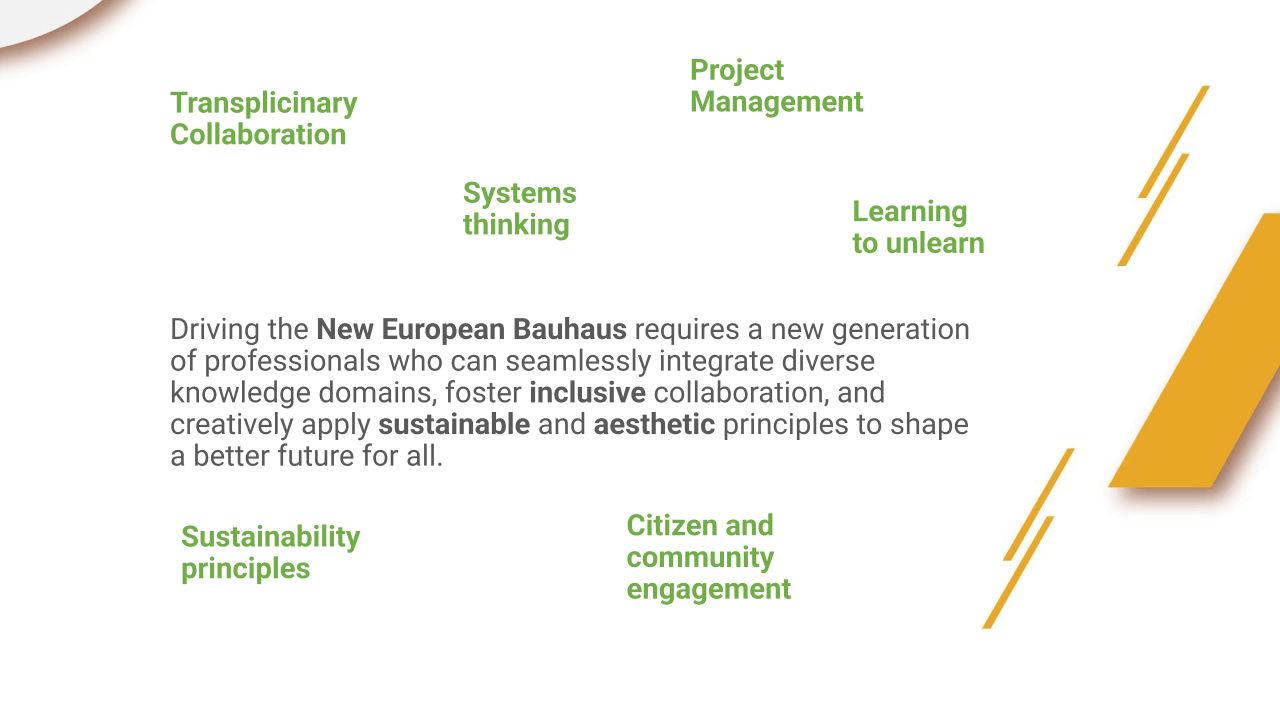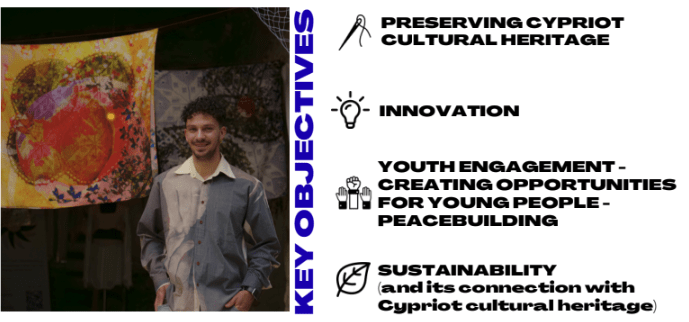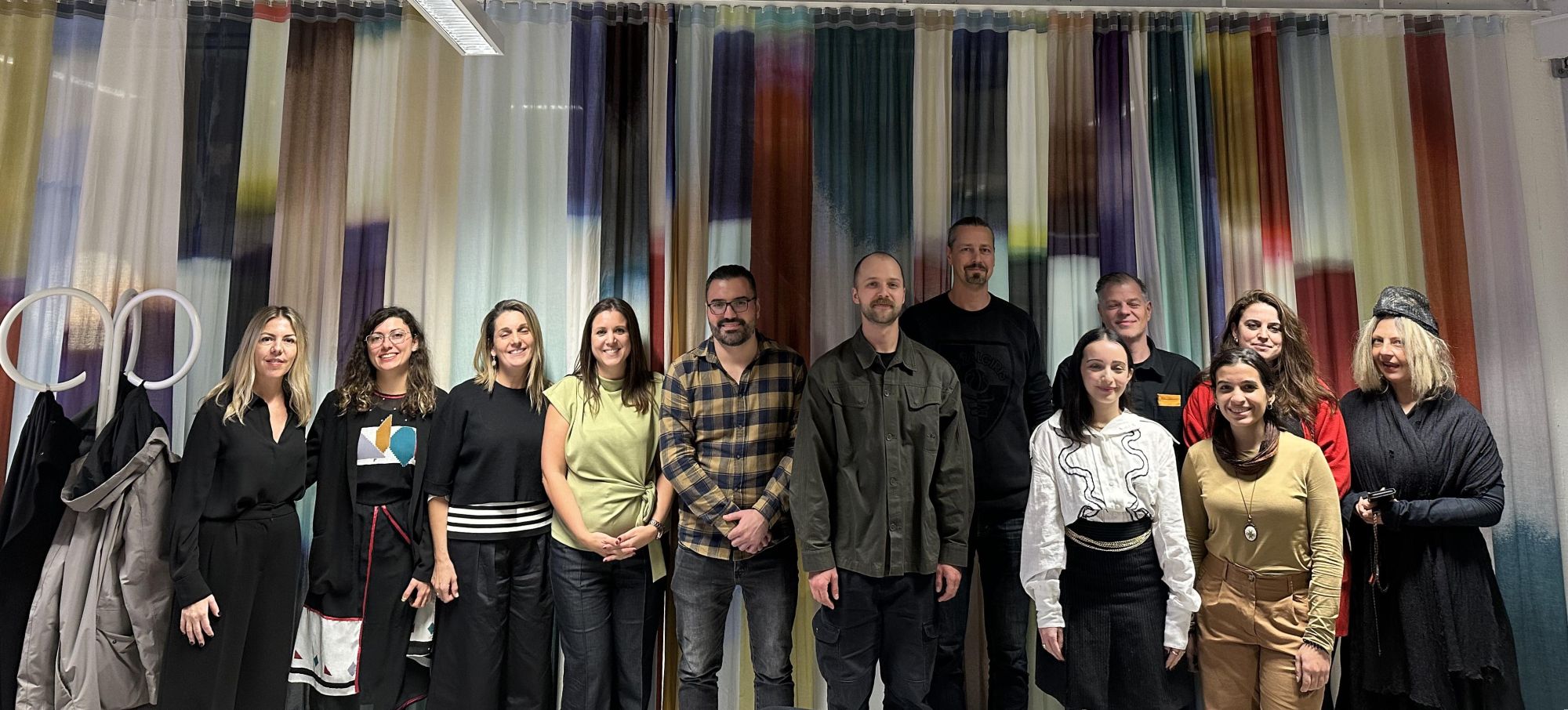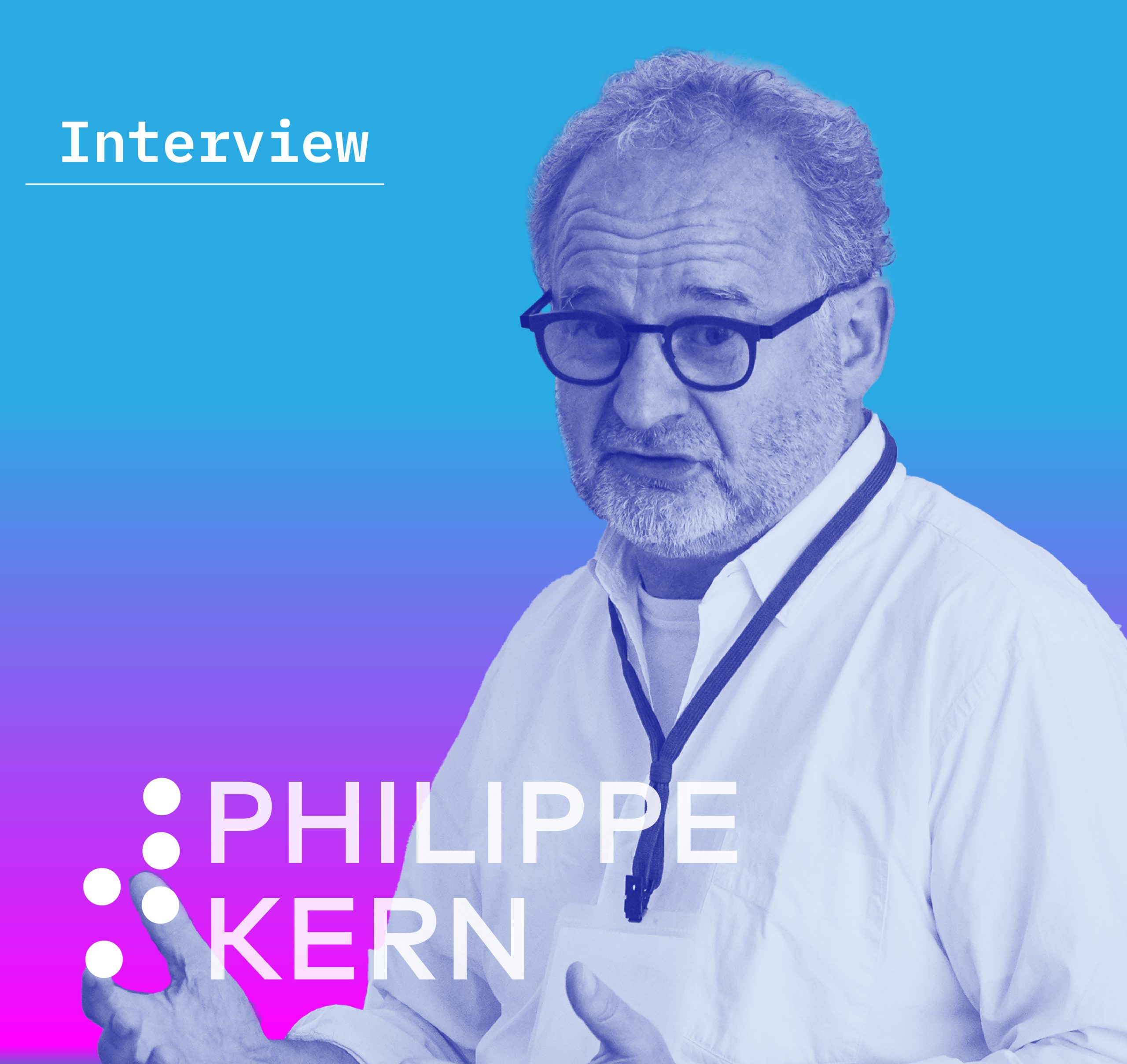Article by Inês Costa
At the end of October, Materahub project managers Becky Riches and Sara Simeone joined peers and partners in Brussels for the international conference “Exploring Green Futures in Education and Design.” The event formed part of the Erasmus+ project Futures Design Education, a collaborative initiative dedicated to rethinking how art and design education can support the green and digital transitions in Europe.
At a time when sustainability, creativity, and innovation are increasingly interconnected, Futures Design Education offers a forward-looking model of how design-based learning can help shape the competencies needed for a greener, fairer, and more beautiful world. In doing so, it helps bring to life the values of the New European Bauhaus (NEB) within higher education.
The conference blended theory and practice, offering a hands-on upcycling workshop led by Doris Kailos, teaching fashion design at the Frederick University of Cyprus.
Redefining Learning: Micro-Credentials and the Green Transition
During the conference, Becky Riches introduced the project’s central objective: developing and integrating Art & Design micro-credential courses within existing higher education programmes. These flexible learning modules aim to equip students and professionals with the creative, technical, and ethical skills required for the Green Transition. Becky explained how micro-credentials capture specific, verifiable learning outcomes that respond to emerging labour market and societal needs. They provide a portable, quality-assured, and modular form of education that supports lifelong learning in a fast-changing world. “They represent a bridge from concept to creation,” Becky noted, “supporting the New European Bauhaus values by combining creativity, sustainability, and inclusiveness.”

The importance of knowledge identification and valorisation was also stressed by Christina Dymioti, from Fashion Heritage Network in Cyprus, who also emphasised the importance of knowledge sharing as a means of preserving heritage and promoting the adoption of more sustainable practices. This project engages the country’s creatives, representing an opportunity for emerging designers to showcase their work and challenge themselves to put these values into practice – reuse and upcycle.
By connecting with fashion design professors from local universities and with older generations, they were able to gather knowledge about traditional practices and regional characteristics they aim to pass on to younger generations. There is also a strong intention to involve the community and raise awareness through workshops, exhibitions, runways, and discussions, highlighting the creative economy while encouraging craftmanship, authenticity and environmental responsibility.

The New European Bauhaus in Action: Stories of Local Change
The conference also showcased inspiring examples of how NEB principles—sustainability, aesthetics, and inclusiveness—can be brought to life through design, community engagement, and creative reuse.
- Pit to Table (Cyprus) — presented by Mustafa Afsaroglu — transforms olive pits, a by-product of olive oil production, into beautiful and functional furniture. By connecting local farmers, artisans, and designers, the project exemplifies circular design and turns agricultural waste into opportunity.
- Noi Ortadini (Matera, Italy) — presented by Sara Simeone — revitalises an abandoned urban space into a community garden that promotes urban horticulture, circular economy practices, and social inclusion. Through workshops, concerts, and exhibitions, the garden has become a vibrant place where art, learning, and sustainability meet.
- Nemuno7 (Kaunas, Lithuania) — presented by Gediminas Banaitis — reimagines an old dredger as a floating cultural space for exhibitions and community gatherings. Celebrating water as a vital resource, Nemuno7 promotes sustainable architecture and eco-conscious art, continuing the legacy of Kaunas 2022 – European Capital of Culture.
A Shared Vision for Sustainable Learning Mi
Moderated by Anna Merry, PhD. Assistant Professor at Department of Arts & Communication. Frederick University the Brussels conference concluded by reflecting on the project’s two-year journey. What began as a shared reflection on the meaning of sustainability evolved into a pan-European collaboration across Cyprus, Belgium, Italy, Greece, and Lithuania — exploring how education can drive the green transition from within. Research carried out within the project revealed a strong European appetite for transformation: 85% of respondents expressed the need for more knowledge on the green transition, while 75% called for flexible, modular learning paths. In response, the partnership designed six Art & Design micro-credential courses, combining theory and practice to empower students, educators, and professionals to become agents of sustainable transformation in their
The Brussels event marked more than the end of a project, it was a celebration of collaboration and shared learning, and a glimpse into the future of education in Europe. It reaffirmed that the path to a more sustainable and inclusive Europe begins in the classroom. Through initiatives like Futures Design Education, the seeds of that transformation are already being planted, cultivating the skills, mindsets, and creativity needed to design the future we all want to live in.





